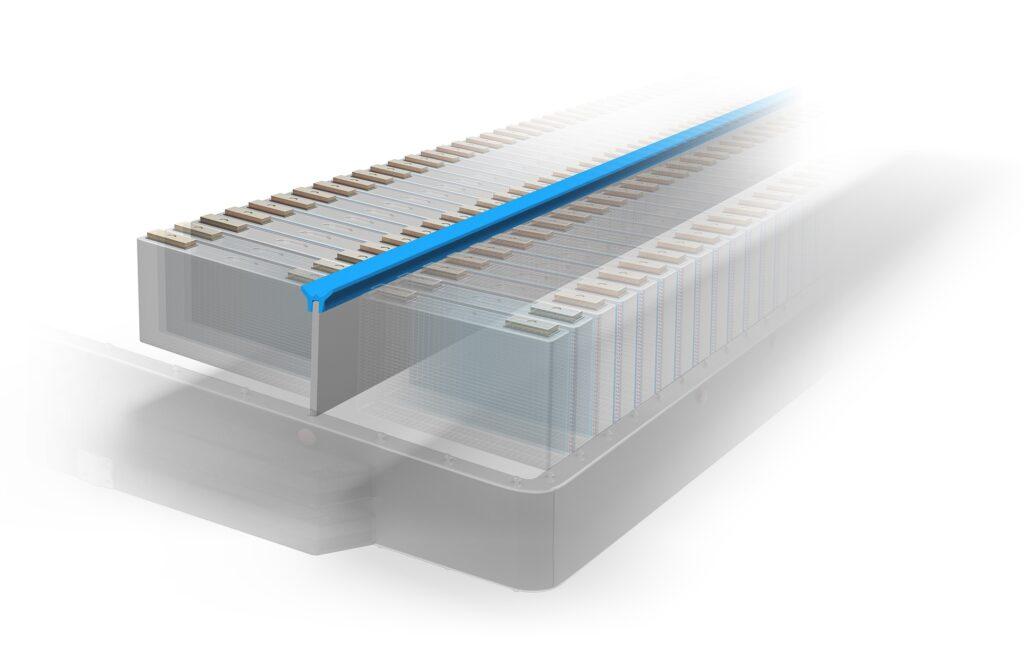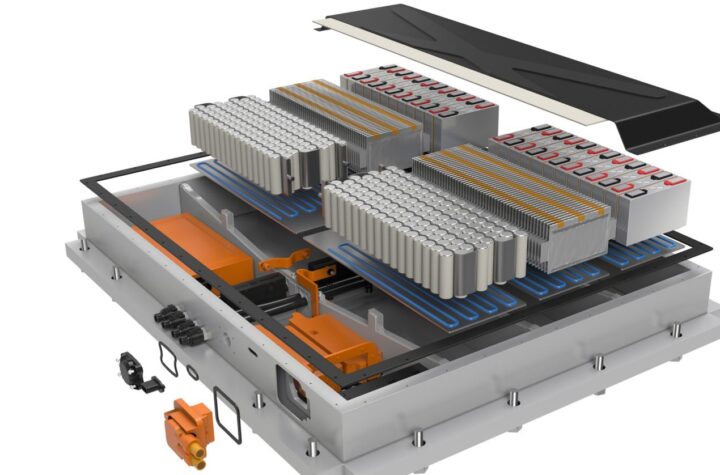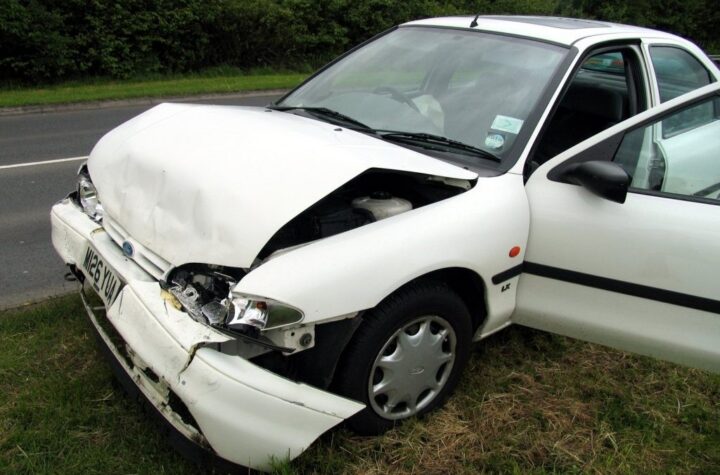
In lithium-ion batteries, higher energy density increases the risk of thermal runaway. As a preventive measure, Freudenberg Sealing Technologies has developed thermal barriers that help to slow down thermal runaway by increasing resistance to propagation. The new 3D thermal barriers can be used at various positions within the battery and have already proven reliable in their initial series productions.
Well over 100 million electric cars are expected to be on roads worldwide by 2030. To make electromobility more efficient in the future, many manufacturers are working on achieving higher ranges and shorter charging times. That is why high-performance batteries are one of the priorities in this development. But in lithium-ion batteries, higher energy density increases the risk of thermal runaway. For that technical environment, Freudenberg Sealing Technologies has developed thermal barriers. These slow down or even stop thermal runaway by increasing thermal propagation resistance.
“What is completely new is that the thermal barriers are now also available in customized, flexible 3D geometries, which makes it possible to use them in various positions within the battery and allows for integration of additional components,” says Andrew Espinoza, Global Vice President Technology of the Oil Seals Powertrain & Driveline Division at Freudenberg Sealing Technologies.
Thermal runaway, which is the ignition or explosion of a battery cell caused by a self-reinforcing heating process, is a significant safety problem. It can be caused by a range of internal and external factors, such as overcharging, excessive discharging, damage, or heating of the battery. Thermal runaway releases not only flames and hot gases but also electrically conductive particles. These in turn can cause thermal propagation in adjacent cells and lead to short circuits in the electrical system. Thermal barriers act as protective layers that slow down or even prevent the heat and flames from spreading in the battery, which significantly increases safety.
Entirely new possibilities
Beyond the existing two-dimensional barriers, such as flat mats and thermal blankets, the 3D variant opens entirely new possibilities. Customer-specific, three-dimensional geometries can be produced in a variety of high and low volume manufacturing processes, such as, injection molding and continuous extrusion. Profile seals, module separators and covers, including those for bus bars, cooling lines or electrical components are a few of the products currently being produced. Another advantage: The manufactured, complex 3D geometries are lightweight and have minimal impact on the battery’s overall weight.
Specifically for these applications, materials experts at Freudenberg Sealing Technologies have developed heat-resistant, electrical, and thermal insulating materials. Testing of these materials has been completed in-house, proving that they can safely withstand temperatures of up to 1,200 °C. It is their special composition that makes these compounded polymers so extremely heat-resistant. It also makes them resistant against particle impacts, such as those that occur when cells are vented. The 3D thermal barriers utilize elastomer solutions, whether in solid form or as a foam, as well as plastic components such as Quantix Ultra®, which enables complex geometries.
Extensive testing
“The three-dimensional thermal barriers and the utilized materials have gone through extensive testing that exceeds the required standards. They have proven their outstanding performance and reliability on bench tests as well as battery system testing. The products meet the highest quality standards, are certified pursuant to UL 94 V-0 and are already being used successfully in initial series production for the automotive industry,” says Andrew Espinoza.
With their 3D thermal barriers, Freudenberg Sealing Technologies has rolled out an innovative product that increases the safety of electric cars and lowers the risk of thermal propagation in future battery systems. As a partner of the automotive industry, Freudenberg merges market-specific know-how with unique expertise in materials, technology, and development, thus playing a leading role in the development of electromobility.
Learn more: https://www.fst.com/sealing/ma
About Freudenberg Sealing Technologies
Freudenberg Sealing Technologies is a longstanding technology expert and market leader for sophisticated and novel applications in sealing technology and electric mobility solutions worldwide. With its unique materials and technology expertise, the company is a proven supplier for demanding products and applications, as well as a development and service partner to customers in the automotive industries and in general industries. In 2022, Freudenberg Sealing Technologies generated sales of about 2.45 billion euros and employed approximately 13,500 people. More information at www.fst.com.
The company is part of the global Freudenberg Group which has four business areas: Seals and Vibration Control Technology, Nonwovens and Filtration, Household Products as well as Specialties and Others. In 2022 the Group generated sales of more than 11.7 billion euros and employed more than 51,000 associates in around 60 countries. More information is available at www.freudenberg.com.
www.linkedin.com/company/fst/ <https://www.linkedin.com/comp
www.twitter.com/Freudenberg_FS
www.youtube.com/freudenbergsea
www.xing.com/company/fst <https://www.xing.com/company/
Firmensitz: Höhnerweg 2-4, 69469 Weinheim, Deutschland
Amtsgericht Mannheim, HRB 736340
Geschäftsführer: Claus Möhlenkamp, Ludger Neuwinger-Heimes, Matthias Andres, Dr. Matthias Sckuhr Vorsitzende des Aufsichtsrats: Esther M. Loidl












More Stories
DuPont materials science advances next generation of EV batteries at The Battery Show
How a Truck Driver Can Avoid Mistakes That Lead to Truck Accidents
Car Crash Types Explained: From Rear-End to Head-On Collisions